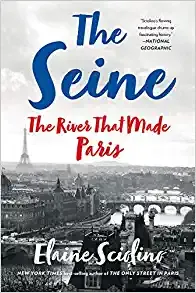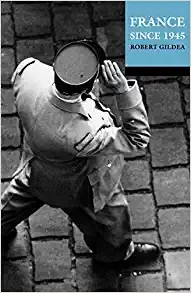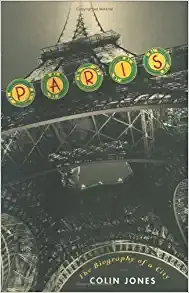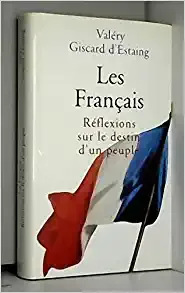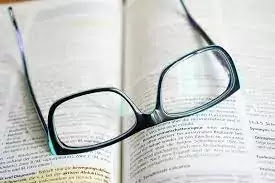Welcome to an insightful journey through the '12 best books on the history of France,' written by
Muhiuddin Alam on the book recommendations and reviews site,
ReadingAndThinking.com.
Over the years as a
leading Authority, I made countless articles many of which can be found on this site.
I have received many requests to recommend some of the French history books. In response, I'm pleased to offer my expert recommendations in this article.
I will recommend you best books on French history in this post, which are based on my in-depth study and testing in this field. Such as A Brief History of France, The Seine, How Paris Became Paris, Seven Ages of Paris, and The Flaneur.
These aren't just the books about France. Below, you'll find 12 books with detailed descriptions of each of these outstanding resources, helping you make well-informed decisions in your French history book journey."
To be honest, my previous understanding of French history was only limited to the description in the high school history book.
It's not that I don't like France, it's just that I'm a little bit repulsive of these things that should be necessary because I read this major.
Occasionally flip through books such as France Profiles, full of difficult-to-remember French names and places.
If you are fortunate enough to have lived in Paris when you were young, she will be with you wherever you go for the rest of your life, because Paris is a feast in motion.
---- Hemingway, "The Flowing Feast"
Even without Hemingway's endorsement, the charm of Paris and even France is still unstoppable.
The 12 Best Books on the History of France
France is a place that all living beings yearn for. It is the most visited tourist destination in the world, and the dominance of such a "world's first tourism market" has lasted for decades.
What is the secret of France that fascinates us to linger? Beautiful scenery and food, literary history?
Through a prism intertwined with historical accumulation, cultural connotation, and French life philosophy, we see a country that is almost legendary.
But it is very likely that this is just our illusion, full of misunderstandings of all kinds. So what does it really look like?
Here Are Some of The Best Books About French History:
1. A Brief History of France
A Brief History of France by Cecil Jenkins
British art historian and literary historian Cecil Jenkins is known as "the Englishman who knows France best". Graduated from Trinity College Dublin, Ireland, and studied at Ecole Normale Supérieure in Paris, France. He has taught at the University of Exeter, the University of Sussex, and the University of Vancouver, and is fluent in French, German, and English.
He believes that if we want to understand France today, we must understand its historical evolution. In his book "A Brief History of France", he leads us to re-examine France as a close neighbor who has loved and killed the French for hundreds of years and systematically uncovers how France became France. The Secret of France, on the contrary, has a more sober understanding of France than the French people who are in it.
Why do we need to know French history? Because the history of France is not only about France today, it is about Europe, it is about ourselves. French history is also an integral part of European and world history. Why do we need to read this book?
It peels the cocoon to reveal the code of French history, and at the same time, it also tells us that history should not be buried in the pile of old papers, but should be compared with reality. "Rediscovering Europe: How France Became France" allows us to have a clear reflection on the contemporary real problems in France and even European countries.
This book is the second in the series "Rediscovering Europe" launched by Unread, which has previously published "Why Spain Became Spain", including the history of Spain, France, Italy, and Portugal, all authors are well-known in the field Experts not only focus on the era and events, but focus on "evolution", and are committed to leading us to re-understand Europe in the form of "every one's little book".
2. The Seine: The River That Made Paris
The Seine: The River that Made Paris by Elaine Sciolino
Blending memoir, travelogue, and history, The Seine is a love letter to Paris and the river that determined its destiny.
Master storyteller and longtime New York Times foreign correspondent Elaine Sciolino explores the Seine through its lively characters―a bargewoman, a riverbank bookseller, a houseboat dweller, a famous cinematographer―
and follows it from the remote plateaus of Burgundy through Paris and to the sea. The Seine is a vivid, enchanting portrait of the world’s most irresistible river.
3. How Paris Became Paris: The Invention of the Modern City
How Paris Became Paris: The Invention of the Modern City by Joan DeJean
Before I read "How Paris Became Paris: The Invention of the Modern City", my impression of Paris was that she was a world-renowned capital of fashion, romance, and art, although I was very fascinated by it. ,
but it is only out of a yearning for a city full of exotic and literary atmosphere, but has never really explored the reason why Paris has become a fashion capital, art capital, romantic capital, and even can be called "Seine" The story and history behind "Pearl by the River".
The book "How Paris Became Paris: The Invention of the Modern City" vividly describes the face of Paris in the 17th century, and tells why Paris stood out in that era and became what the author describes as "the capital of the universe".
The book mainly selects some black and white paintings and some color oil paintings from the early days of Paris, interspersed in various chapters, and guides readers to understand how the modern city of Paris was born.
This book presents the history and charm of Paris through some of the iconic buildings and achievements of the time. The innovative symbol of Paris, the Pont Neuf, which was comparable to the Eiffel Tower in those days, has become the symbol and the most popular attraction in Paris;
the Place des the Vosges, which provides public celebrations and the famous leisure space of Paris, enriches the functions of the city; the artificial on the Seine River Island: Ile Saint-Louis, with its magnificent buildings and luxurious palaces, represents a new and higher level of Paris; the opening of public places such as boulevards, parks, and streets improves the quality of life of residents;
the rapid development of municipal services completely changed the definition of urban life; the booming luxury trade has allowed beautiful cities to quickly promote beautiful products; the rapid wealth of new financiers has improved the level of consumption,
and the temptation of wealth is everywhere; Balzac Once claimed that "love in Paris is different from any kind of love", the romance of Paris need not be mentioned again.
4. Seven Ages of Paris
Seven Ages of Paris by Alistair Horne
In this luminous portrait of Paris, celebrated historian Alistair Horne gives us the history, culture, disasters, and triumphs of one of the world's truly great cities. Horne makes plain that while Paris may be many things, it is never boring.
From the rise of Philippe Auguste through the reigns of Henry IV and Louis XIV (who abandoned Paris for Versailles); Napoleon's rise and fall; Baron Haussmann's rebuilding of Paris (at the cost of much of the medieval city); the Belle Epoque and the Great War that brought it to an end; the Nazi Occupation, the Liberation, and the postwar period dominated by de Gaulle--Horne brings the city's highs and lows, savagery and sophistication,
and heroes and villains splendidly to life. With a keen eye for telling anecdotes and pivotal moments, he portrays an array of vivid incidents to show us how Paris endures through each age, is altered but always emerges more brilliant and beautiful than ever. The Seven Ages of Paris is a great historian's tribute to a city he loves and has spent a lifetime learning to know.
This is a very ambitious book, and to a certain extent, the ambition has been reached, although I think the topic selection is more successful than the text content.
But condensing the history of France into the long-sighted lens of Paris. Interesting too. For people with no basic knowledge of French history, it seems really painful, because there are still many names fighting, and time rolls fast.
My favorite is some small details, Ono Shi. Stories in art and culture. For example, whoever said something, also has a sense of humor. The writing is top-notch.
5. Paris: The Novel
Paris: The Novel by Edward Rutherfurd
From Edward Rutherfurd, the grandmaster of the historical novel comes a dazzling epic about the magnificent city of Paris. Moving back and forth in time, the story unfolds through intimate and thrilling tales of self-discovery, divided loyalty, and long-kept secrets.
As various characters come of age, seek their fortunes, and fall in and out of love, the novel follows nobles who claim descent from the hero of the celebrated poem The Song of Roland; a humble family that embodies the ideals of the French Revolution; a pair of brothers from the slums behind Montmartre, one of whom works on the Eiffel Tower as the other joins the underworld near the Moulin Rouge; and merchants who lose everything during the reign of Louis XV, rise again in the age of Napoleon,
and help establish Paris as the great center of art and culture that it is today. With Rutherfurd’s unrivaled blend of impeccable research and narrative verve, this bold novel brings the sights, scents, and tastes of the City of Light to brilliant life.
6. The Flaneur: A Stroll through the Paradoxes of Paris
The Flaneur: A Stroll Through the Paradoxes of Paris by Edmund White
Bloomsbury is proud to announce the first title in an occasional series in which some of the world's finest novelists reveal the secrets of the city they know best. These beautifully produced, pocket-sized books will provide exactly what is missing in ordinary travel guides: insights and imagination that lead the reader into those parts of a city no other guide can reach.
A flaneur is a stroller, a loiterer, someone who ambles through a city without apparent purpose but is secretly attuned to the history of the place and in covert search of adventure, esthetic or erotic. Edmund White, who lived in Paris for sixteen years, wanders through the streets and avenues and along the quays, taking us into parts of Paris virtually unknown to visitors and indeed to many Parisians.
Entering the Marais evokes the history of Jews in France, just as a visit to the Haynes Grill recalls the presence- festive, troubled-of black Americans in Paris for a century and a half. Gays, Decadents, and even Royalists past and present are all subjected to the flaneur's scrutiny.
Edmund White's The Flaneur is opinionated, personal, and subjective. As he conducts us through the bookshops and boutiques, past the monuments and palaces, filling us in on the gossip and background of each site, he allows us to see through the blank walls and past the proud edifices and glimpse the inner, human drama.
Along the way he recounts everything from the latest debates among French lawmakers to the juicy details of Colette's life in the Palais Royal, even summoning up the hothouse atmosphere of Gustave Moreau's atelier.
7. Don’t Be A Tourist in Paris
Don't be a Tourist in Paris: The Messy Nessy Chic Guide by Vanessa Grall
Vanessa Grall is a London girl who moved to Paris and never looked back. Her blog Messy Nessy Chic is described as a 'chic cabinet of curiosities, and it records her bohemian adventures in the city.
Her eye for style, both classic and kitsch, has won her a huge, dedicated following, with over 1.5 million unique visitors to her website per month, and 400,000 subscribers on social media.
In addition, Vanessa's charisma has seen her profiled in Porter, Vogue, Conde Nast Traveller, and The Daily Mail.
Don't be a Tourist is Grall's off-beat guide to her adopted home, in which she looks past the cliches and tourist traps, and uncovers the true heart of Paris. Join her to walk in Hemingway's footsteps, uncover catacomb parties, and find the city's most authentic dishes.
With tips for visiting on a shoestring, with your parents, or with a broken heart, Don't be a Tourist in Paris is a uniquely warm and insightful guide.
Affirms Audrey Hepburn's famous statement that "Paris is always a good idea."
- The Paris Runaways
- Paris like it is in the Movies (and on Instagram)
- Anywhere but the Louvre
- Lonely Hearts Club
- I hate to say I'm a hipster but...
- I Know this Great Little Place
- Parents are Coming to Town
- Paris in Wonderland: Down the Deep, Dark Rabbit Hole
- 10 Hour Layover
- Forget Pinterest Paris
8. A Taste of Paris

A Taste of Paris: A History of the Parisian Love Affair with Food by David Downie
In his trademark witty and informative style, David Downie embarks on a quest to discover “What is it about the history of Paris that has made it a food lover’s paradise?”
Long before Marie Antoinette said, “Let them eat cake!” (actually, it was brioche), the Romans of Paris devoured foie gras, and live oysters rushed in from the Atlantic; one Medieval cookbook describes a thirty-two-part meal featuring hare stew, eel soup, and honeyed wine;
during the last great banquet at Versailles a year before the Revolution the gourmand Louis XVI savored thirty-two main dishes and sixteen desserts; yet, in 1812, Grimod de la Reynière, the father of French gastronomy, regaled guests with fifty-two courses, fifteen wines, three types of coffee, and seventeen liqueurs.
Following the contours of history and the geography of the city, Downie sweeps readers on an insider’s gourmet walking tour of Paris and its environs in A Taste of Paris, revealing the locations of Roman butcher shops, classic Belle Epoque bistros serving diners today, and Marie Antoinette’s exquisite vegetable garden that still supplies produce, no longer to the unfortunate queen,
but to the legendary Alain Ducasse and his stylish restaurant inside the Palace of Versailles. Along the way, readers learn why the rich culinary heritage of France still makes Paris the ultimate arbiter in the world of food.
9. France Since 1945
France Since 1945 by Robert Gildea
The last fifty years of French history have seen immense challenges for the French: constructing a new European order, building a modern economy, and searching for a stable political system. It has also been a time of anxiety and doubt.
The French have had to come to terms with the legacy of the German Occupation, the loss of the Empire, the political and social implications of the influx of foreign immigrants, the rise of Islam, the destruction of rural life, and the threat of Anglo-American culture to French language and civilization.
10. Paris: The Biography of a City
Paris: The Biography of a City by Colin Jones
Colin Jones published Paris: Biography of a City in 2004. It is the history of Paris, but it covers a wide range of fields. You can see the figures of presidents and beggars, and you can see the different social environments of the metropolis and red-light districts. You can even see the history of France from the perspective of Paris.
However, Colin believes that the history of Paris is difficult to describe. If you record everything in Paris from its birth to the present, it is impossible to write all of it on thousands of pages. He begins the book with the example of the avant-garde writer George Perek, who tried to record everything for 24 hours somewhere in Paris, and it took nearly 60 pages.
Of course, it is impossible for us to compare the word count, line count, and paper size of a publication to compare the difference between the 60 pages written by Perek and the nearly 700 pages of this "Paris" in our hands, which actually explains Another question that Colin wanted to express is that if history is just a narrative, then there is no difference between what happened in Paris and what did not happen in Paris.
So, if a writer wants to write the history of Paris well, he needs to do well, not just how to tailor it. This is not an easy task. If you don't grasp it well, it will easily lead readers to enter the writer's "memory field" instead of the real Paris with profound historical precipitation.
"Paris Biography" divides the history of Paris into 12 periods, each of which highlights the staged characteristics of Paris' development, so the time periods are not exactly the same, but in general, the development process of Paris has also experienced major ups and downs. Ups and downs, rebirth, revolution, urban planning, and construction are also its keywords.
11. The Oxford History of the French Revolution
The Oxford History of the French Revolution by William Doyle
In 1788, France experienced a severe natural disaster, and most farmers lost their crops. Coupled with the belligerence of Louis XV before, the treasury was empty.
The monarchical government under Louis XVI was corrupt and incompetent, and inflation was so high in France that people living in the cities paid for bread with more than half of their income.
Facing domestic grievances, the king decided to convene a three-level council on May 5, 1789. Louis XVI tried to increase taxes at the conference to limit the publishing industry, but the third estate did not agree to increase the tax and decided to establish a national assembly.
The king's attempt to use the army to shut down the Constituent Assembly, which was renamed the National Assembly, was met with protests and resistance from the citizens of Paris. They occupied most of the city and captured the Bastille, which became the start of the French Revolution.
The revolution was full of violence, and with the support of angry Parisians, the Revolution executed Louis XVI and his queen. Also with their support, the Great Revolution ushered in the tyranny of Robespierre, and with their support, the brutal dictator was sent to the guillotine.
Revolution is different from reform. Reform is to negotiate the interests of all parties. Revolution shows that this kind of negotiation is no longer effective, and people must express their wishes in a more extraordinary way.
This outrageous approach is most violent, as those who own most of the wealth refuse to give up their privileges. But is the violence that made the ruling classes renounce their privileges the same kind of violence as all the violence of the French Revolution?
12. Les Français
Les Français by Valery Giscard d'Estaing
Destin was the president of the French Fifth Republic from 1974 to 1981. In this book, he brings together his profound reflections as a political elite who has been active in politics for more than 30 years: Globalization Today, France in this third millennium What position in? Where will the French way of thinking and biography, and the desire for radical reform, lead France?
Benefiting from a wide-ranging macro perspective and unique personal observation, Destin analyzes, argues, and looks forward to several dimensions such as France's international status, political structure, political operation mechanism, and national temperament, supplemented by a keen French society. Realistic observation explores the relationship between French psychology and the rise and fall of national politics.
Presented to us in this book are the proud Gallic rooster and the sense of vulnerability that comes with that pride. Through the horizontal and vertical comparison of time and space, Destin's historical pride in the French nation is revealed between the lines, and he is also worried about the variables in France at present, such as the discussion on the French immigration problem and weak government management.
The predicament is instructive. Destin has written extensively in political commentary and is especially keen to discuss the national identity and political life of France.
Due to the sensitivity and sense of responsibility of politicians, Destin hopes to share his experience in governing, aiming to learn from history and illuminate the way forward. It is precisely because of this that this book also makes us feel the human touch that is different from the cold analysis.
You May Also Like: Best Books on the History of France
- Madame Tussaud by Michelle Moran
- The Merovingian Kingdoms 450 - 751 By Ian Wood
- Marie Antoinette: The Journey by Antonia Fraser
- Citizens by Simon Schama
- The Eighteenth Brumaire of Louis Napoleon by Karl Marx
- Les Miserablés by Victor Hugo
- The Valois: Kings of France 1328-1589 By Robert Knecht
- The French Revolutionary Wars by Gregory Fremont-Barnes
- Napoleon: A Life by Andrew Roberts
- The Death of the French Atlantic by Alan Forrest
- How the French Learned to Vote by Malcolm Crook
- Sex in an Old Regime City by Julie Hardwick
- The Global Refuge by Owen Stanwood
- The Making of a Terrorist by Jeff Horn
- The Voices of Nîmes by Suzannah Lipscomb
- Today Sardines Are Not for Sale by Paula Schwartz
- The Napoleonic Wars by Alexander Mikaberidze
- The Fall of Robespierre by Colin Jones
- Pirating and Publishing by Robert Darnton
- The Jacquerie of 1358 by Justine Firnhaber-Baker
- Libertines and the Law by Adam Horsley
- Dead Men Telling Tales by Matilda Greig
- The Seine by Elaine Sciolino
- How Paris Became Paris by Joan DeJean
- Seven Ages of Paris by Alistair Horne
- Paris: The Novel by Edward Rutherfurd
- The Flaneur by Edmund White
- Don’t Be A Tourist in Paris by Vanessa Grall
- A Taste of Paris by David Downie
- Best History of France - Amazon
Know someone who might be interested in this article? Share it with them.



